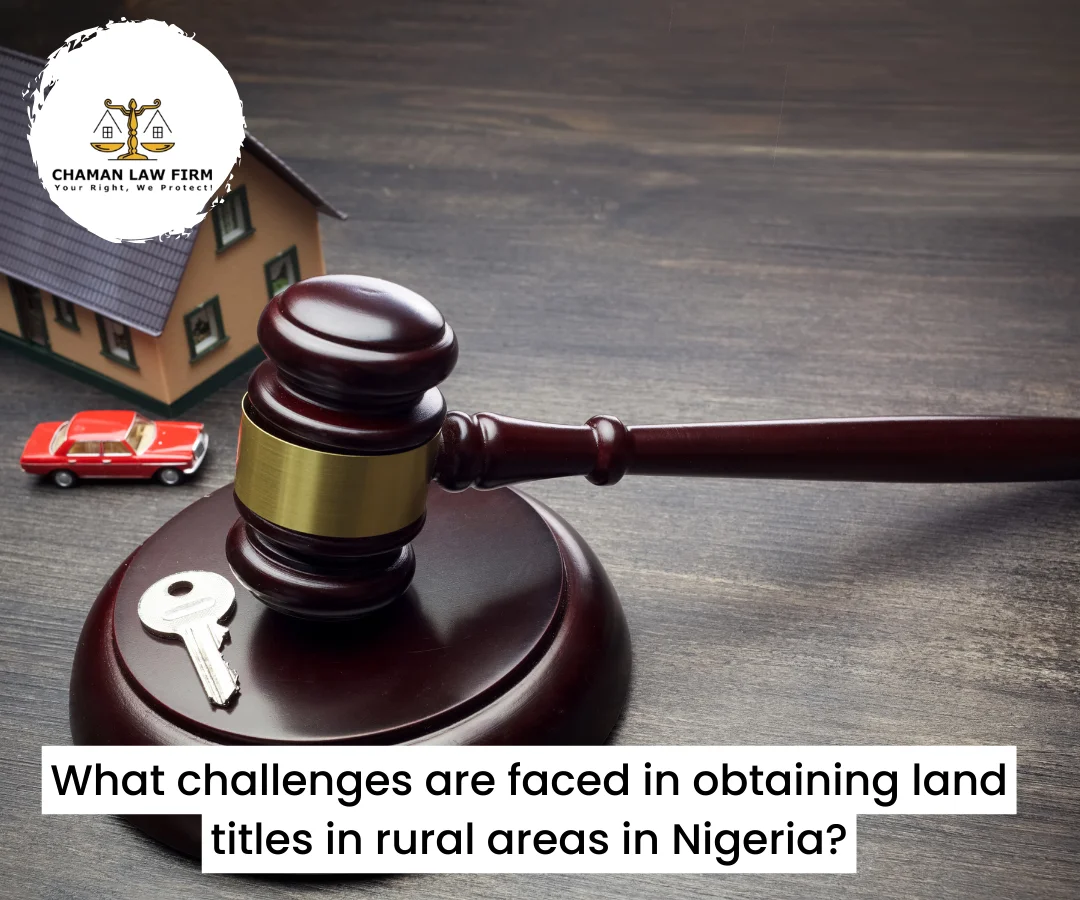What Challenges are Faced in Obtaining Land Titles in Rural Areas in Nigeria?
Introduction:
Land is a precious and finite resource in Nigeria, and obtaining secure land titles is a fundamental concern for individuals and communities, especially in rural areas. Land titles provide legal protection and the assurance of ownership, facilitating economic development, investment, and infrastructure development. However, the process of obtaining land titles in rural Nigeria is fraught with various challenges that hinder progress and development. This article explores the key challenges faced in obtaining land titles in rural areas of Nigeria and their impact on the local population.
1. Complex and Unreliable Land Documentation:
One of the most significant challenges is the complexity and unreliability of land documentation systems in rural Nigeria. Many landowners lack clear and legitimate documents to prove ownership, making it difficult to establish ownership rights and boundaries. Inaccurate land records, incomplete documentation, and overlapping claims further exacerbate this challenge, leading to disputes and legal battles.
2. Corruption and Bureaucracy:
Corruption within the land administration system is a major obstacle to obtaining land titles in rural Nigeria. Bureaucratic processes are often marred by corruption, leading to extortion and bribery. Individuals seeking land titles are forced to pay unofficial fees, making it financially burdensome for many. This corruption not only undermines the credibility of the system but also discourages potential investors and hinders economic growth in rural areas.
3. Lack of Awareness and Education:
A significant number of rural landowners lack awareness and education regarding the importance of obtaining proper land titles. This lack of knowledge often results in landowners failing to secure their land rights. Educating rural communities on the benefits of land titles and the steps involved in obtaining them is crucial for improving the situation.
4. Conflicts and Land Grabbing:
Land-related conflicts are prevalent in rural Nigeria, often driven by disputes over ownership and boundaries. In the absence of secure land titles, land grabbing becomes a widespread issue, as powerful individuals or entities take advantage of the uncertainty and dispossess vulnerable landowners. These conflicts lead to displacement, insecurity, and economic losses for the affected communities.
5. Lengthy and Cumbersome Registration Process:
The registration process for land titles in Nigeria is often slow and cumbersome. This discourages potential landowners from pursuing legitimate documentation. The extended time frame required for the completion of the process contributes to insecurity, as individuals cannot access credit or invest in their land without a title.
6. Inadequate Infrastructure and Technology:
Many rural areas in Nigeria lack the necessary infrastructure and technology to support efficient land registration. This hinders the digitization and modernization of land administration systems, making it challenging to streamline the process and reduce the risk of corruption.
Impact on Rural Development:
The challenges in obtaining land titles in rural Nigeria have a profound impact on rural development. Without secure land titles, it is difficult for communities to attract investments, access credit, and engage in productive activities. This results in slower economic growth and perpetuates poverty in rural areas.
Conclusion:
The challenges in obtaining land titles in rural Nigeria are multifaceted and deeply rooted in the country’s land administration system. Addressing these issues is crucial for the economic development and security of rural communities. Initiatives that promote transparency, education, and improved infrastructure can play a significant role in resolving these challenges and ensuring that rural landowners can access the benefits of secure land titles.


